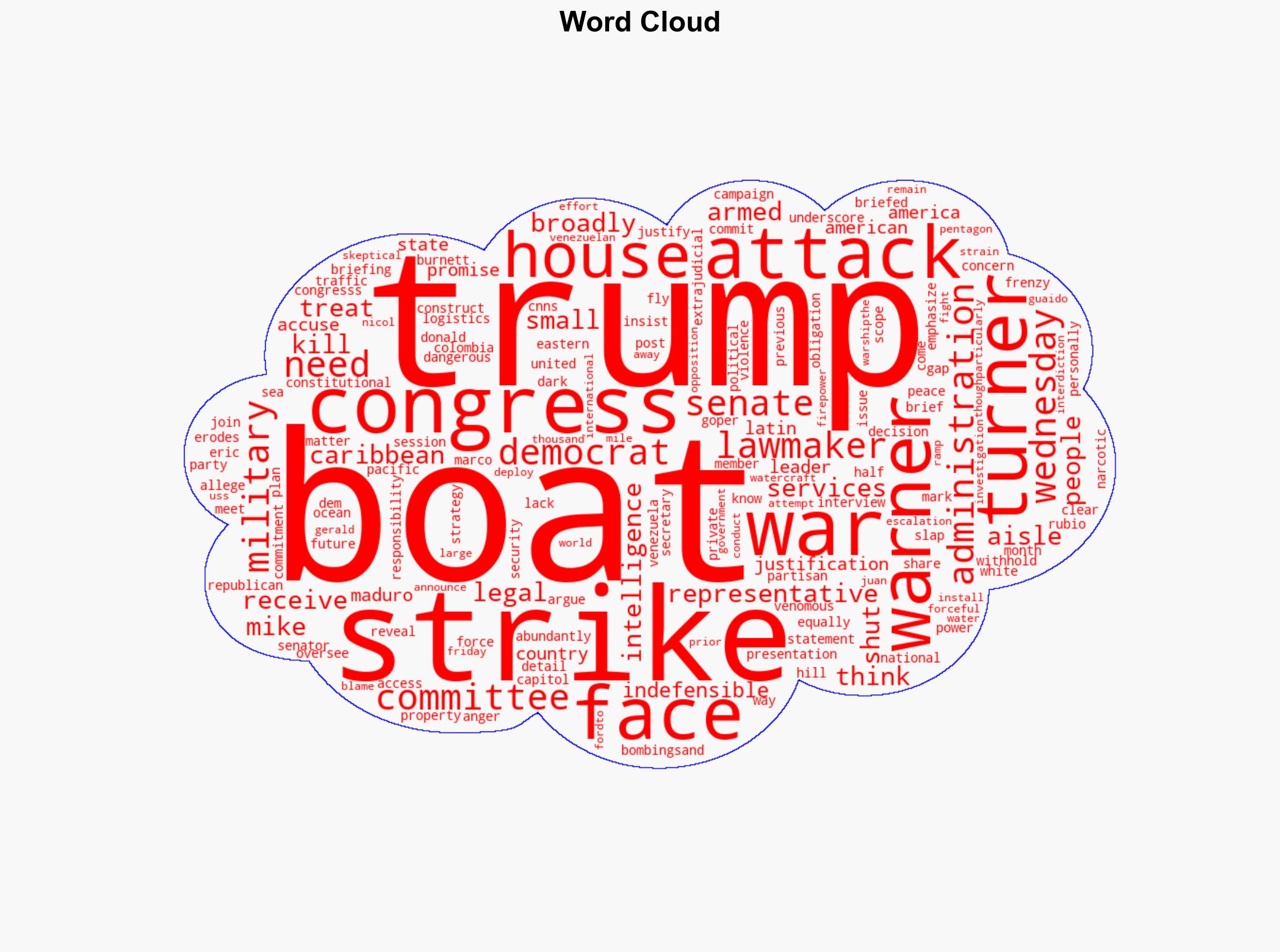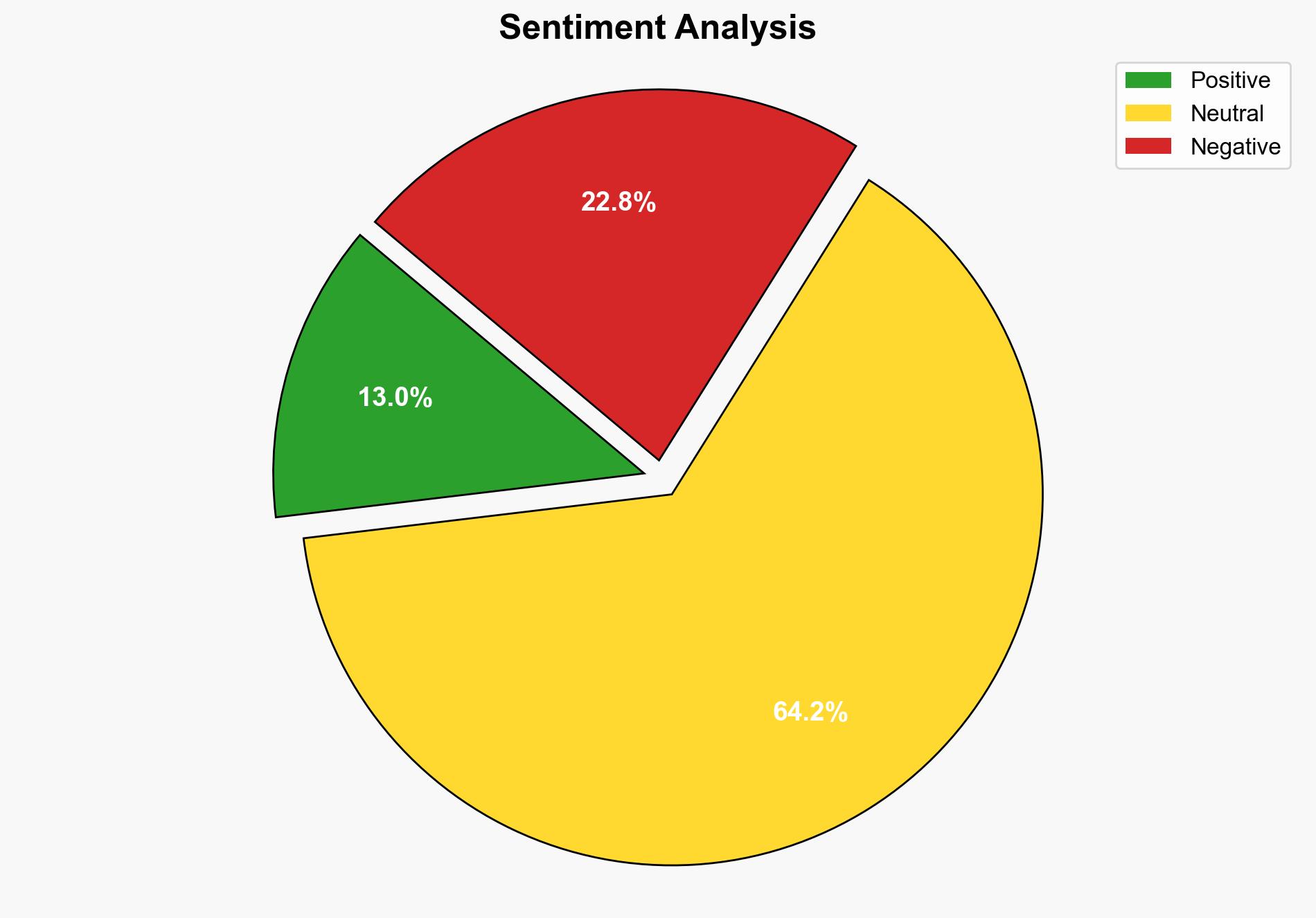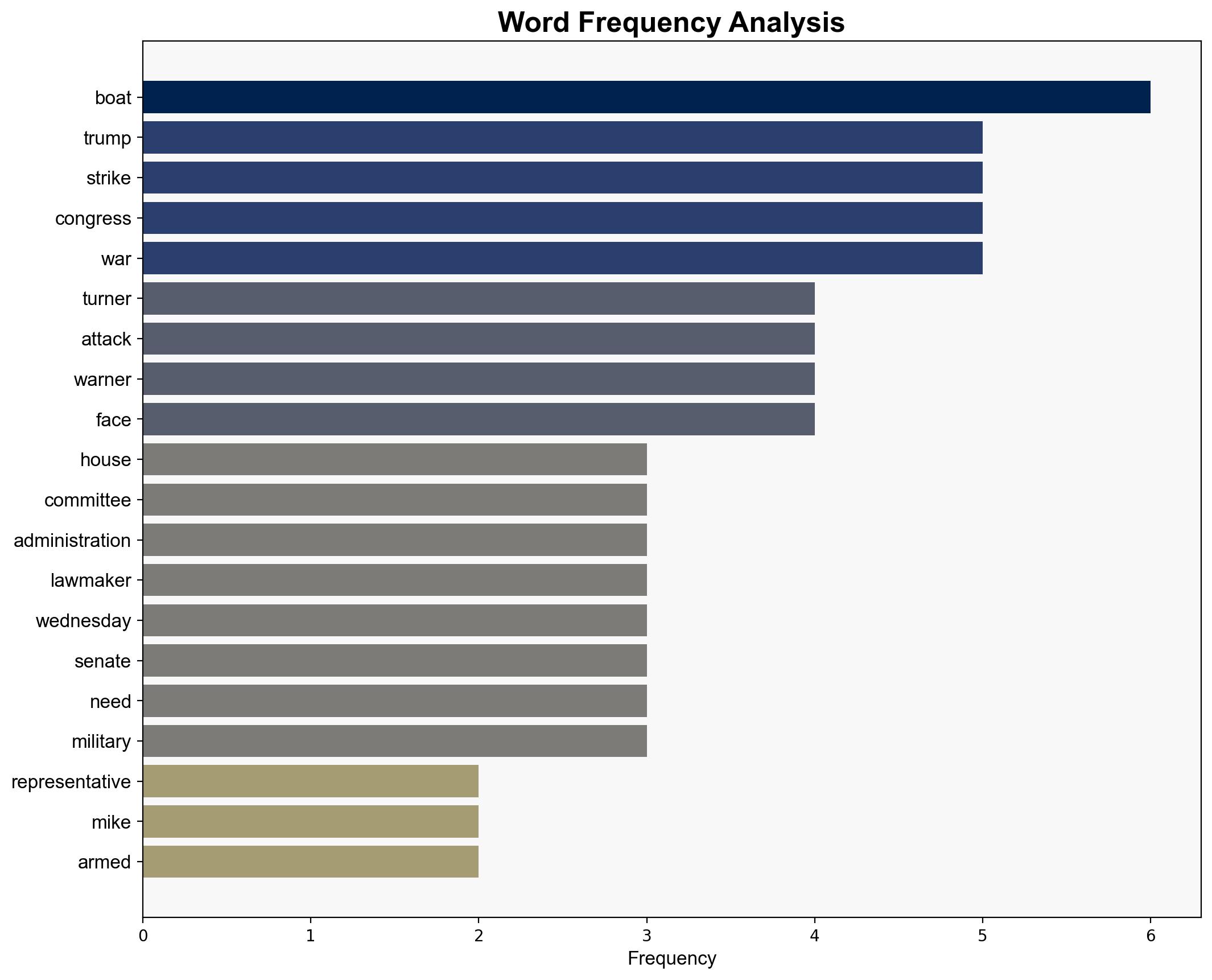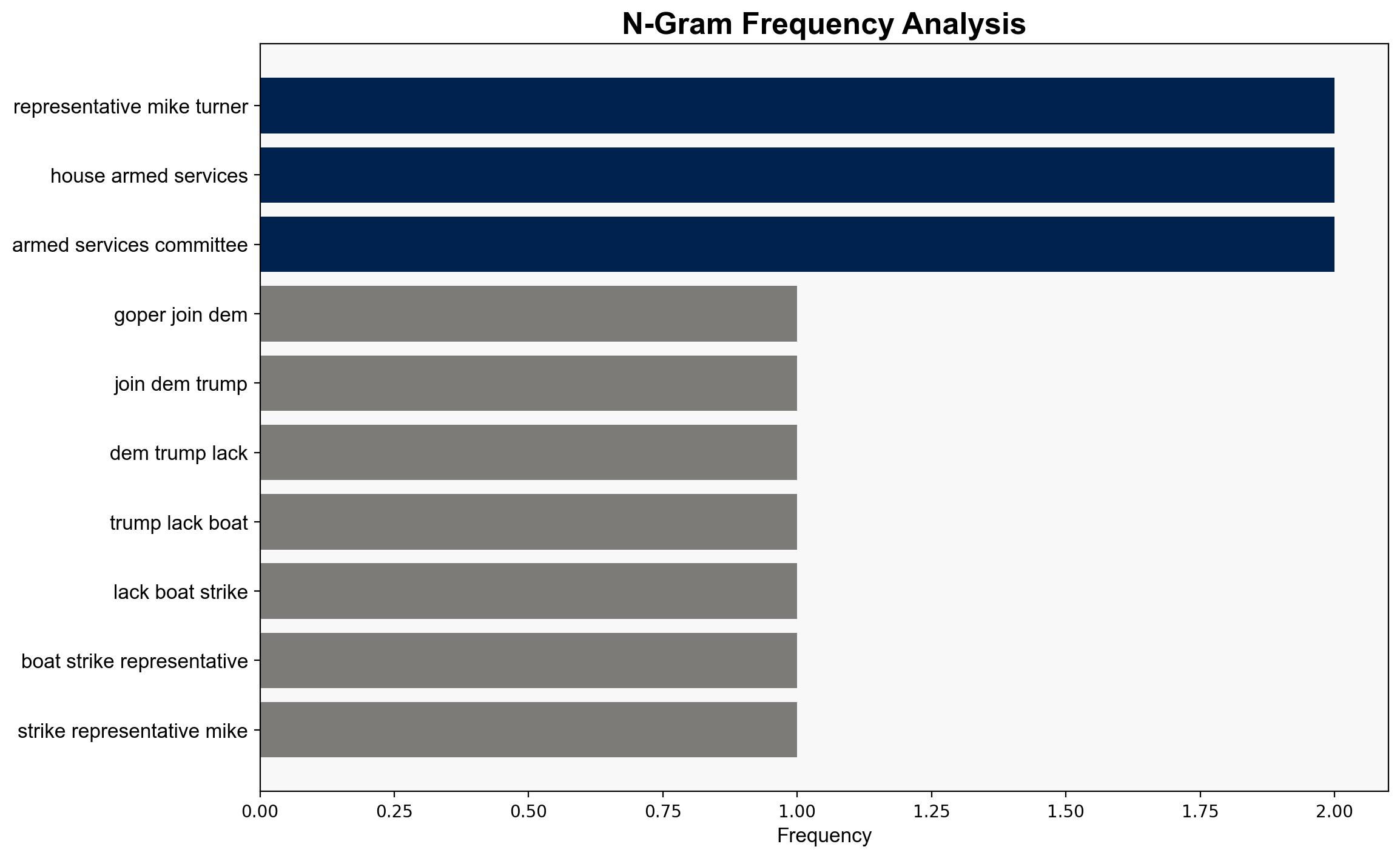GOPer Joins Dems in Fury Over Trump Refusal to Share Boat Strike Info – The New Republic
Published on: 2025-10-30
Intelligence Report: GOPer Joins Dems in Fury Over Trump Refusal to Share Boat Strike Info – The New Republic
1. BLUF (Bottom Line Up Front)
The most supported hypothesis is that the Trump administration’s refusal to share information about the boat strike is primarily a strategic decision to maintain operational security and control over the narrative. Confidence in this assessment is moderate due to the lack of transparency and potential political motivations. It is recommended that Congress pursue a formal inquiry to ensure oversight and accountability, while maintaining diplomatic channels to manage regional tensions.
2. Competing Hypotheses
1. **Operational Security Hypothesis**: The Trump administration is withholding information to protect sensitive operational details and intelligence sources, aiming to maintain strategic advantage in ongoing operations against narcotics trafficking.
2. **Political Control Hypothesis**: The administration is using the situation to exert political control, suppressing information to avoid scrutiny and potential backlash from both domestic and international actors.
Using ACH 2.0, the Operational Security Hypothesis is better supported by the administration’s historical emphasis on national security and its pattern of limited disclosure in military operations. The Political Control Hypothesis is plausible but less supported due to the lack of direct evidence linking the decision to political motivations.
3. Key Assumptions and Red Flags
– **Assumptions**:
– The administration has credible intelligence justifying the strike.
– Congress’s demand for information is primarily for oversight, not political gain.
– **Red Flags**:
– Lack of transparency could indicate either operational necessity or political manipulation.
– The absence of a clear legal justification raises concerns about the legitimacy of the strike.
– **Blind Spots**:
– Potential undisclosed international agreements or pressures influencing the administration’s actions.
4. Implications and Strategic Risks
– **Geopolitical Risks**: Escalation of tensions with Latin American countries, particularly Venezuela, could destabilize the region and strain U.S. diplomatic relations.
– **Domestic Risks**: Bipartisan dissatisfaction may lead to increased scrutiny of the administration’s military policies, potentially impacting future legislative support.
– **Operational Risks**: Continued secrecy might hinder effective congressional oversight, risking unchecked military actions.
5. Recommendations and Outlook
- **Mitigation**: Congress should initiate a formal inquiry to ensure transparency and accountability, while maintaining confidentiality of sensitive information.
- **Opportunities**: Leverage diplomatic channels to de-escalate regional tensions and reinforce international cooperation against narcotics trafficking.
- **Scenario Projections**:
– **Best Case**: Successful inquiry leads to improved oversight and strengthened U.S.-Latin America relations.
– **Worst Case**: Escalation of military actions without oversight results in regional instability and international condemnation.
– **Most Likely**: Continued tension with gradual disclosure of information under congressional pressure.
6. Key Individuals and Entities
– Mike Turner
– Mark Warner
– Donald Trump
– Marco Rubio
– Nicolás Maduro
7. Thematic Tags
national security threats, geopolitical tensions, military oversight, U.S.-Latin America relations




